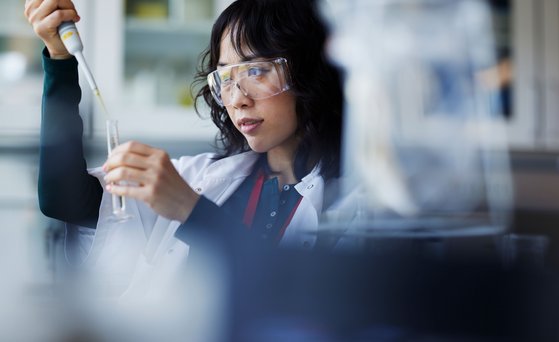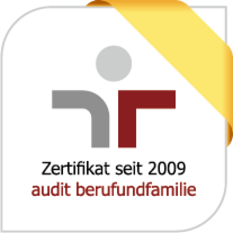Master-/Diploma Thesis in the Department of Chemical and Product Safety in the Dermatotoxicology Study Centre of the German Federal Institute for Risk Assessment (BfRshort forGerman Federal Institute for Risk Assessment)

The German Federal Institute for Risk Assessment (BfRshort forGerman Federal Institute for Risk Assessment) is the national institute which prepares expert reports and opinions on questions of food, feed and chemical safety and consumer health protection in Germany on the basis of internationally recognised scientific assessment criteria. It advises the Federal Government and other institutions and interest groups in these areas. The BfRshort forGerman Federal Institute for Risk Assessment conducts its own research on topics that are closely linked to its assessment tasks. It is an institution with legal capacity within the portfolio of the Federal Ministry of Food and Agriculture (BMELshort forGerman Federal Ministry of Food and Agriculture).
The BfR’s Department of Chemical and Product Safety has an immediate vacancy for the following position in the Dermatotoxicology Study Centre: Master-/Diploma Thesis on the topic: Production of recombinant proteins from well-known food allergens and "alternative protein sources" for the evaluation of immunological cross- reactivities.
Food allergies to crustaceans are one of the most common triggers of an anaphylactic shock and can consequently lead to life-threatening reactions. Approximately 1-2% of the population are affected by this food allergy. Insects, as organisms related to crustaceans, are considered a pioneering alternative protein source and are increasingly gaining approvals as novel foods in the European food market.
Both crustaceans and insects contain two of the most well-known panallergens, tropomyosin and arginine kinase. These two allergens are also present in-house dust mites. Initial studies indicate a potential immunological cross-reactivity in crustacean and house dust mite allergic individuals to insect allergens. The aim of this project is the final production of recombinant proteins of tropomyosin and arginine kinase from insects, crustaceans, and house dust mites as well as control proteins to establish controlled and comparable starting conditions. The produced proteins (allergens) will then be tested for IgE cross- reactivity in crustacean and house dust mite allergy sufferers and, in parallel projects, for cross-reactive T cells. Additionally, we aim to investigate other allergens in insects in the future to explore potential sensitization through insect-based foods. For this purpose, fractions of total protein extracts will be produced, which will then be analysed for relevant allergens using established methods (ELISA, Western blot, basophil activation test). Many of the methods have already been applied to contact allergens such as nickel, cobalt, and palladium in both allergic and non-allergic individuals (Aparicio-Soto et al.short foret alii (lat. "and others"), 2020, doi.org/10.1111/all.14322; Riedel et al.short foret alii (lat. "and others"), 2022, doi.org/10.1111/all.15494). In the context of this project, the approach is extended to food allergens. This work serves as a foundation to understand the prevalencePrevalenceTo glossary of allergies to novel foods and to ensure the best possible protection for allergic patients.
Tasks
- Final production of recombinant proteins (allergens or control proteins) using an established expression system
- Purification and characterisation of the synthesised proteins using affinity and size exclusion chromatography, gel electrophoresis, Western blots and mass spectrometry
- Analysis of specific IgE responses by ELISA, Western blot and basophil activation tes
- Characterisation and fractionation of protein extracts to identify further relevant allergens
Requirements
- Studies in biology/immunology/biomedicine or other related field (e.g., biochemistry, toxicology, chemistry, biotechnology, pharmacy)
- Experience with cell cultures or other methods relevant to the project would be helpful, but is not a requirement
- Very good command of written and spoken English
- Flexible, dedicated and self-organized working style
The proposed project is a joint venture between the "Study Center Dermatotoxicology" (Chemical and Product Safety) headed by Dr. Katherina Siewert and Division 51 "Effect-Based Analytics and Toxicogenomics" (Food Safety) headed by Prof. Dr. Albert Braeuning.
We offer an excellently equipped laboratory environment, a cooperative research environment in an interdisciplinary and international team and comprehensive supervision.
Application process
If you are interested, please apply via E-Mail to External Link:(Katherina.Siewert@bfr.bund.de, cc Matthias.Winkel@bfr.bund.de) using the subject “application thesis: insect allergens“ by the 01 May 2024. Please send a short motivation letter, CV, certificates and references (BSc) and contact details of at least one reference.
Please send questions regarding the range of duties to:
Dr. Katherina Siewert Tel.: +49(0) 30 18412-57001 e-mail: Katherina.Siewert@bfr.bund.de
Dr. Matthias Winkel Tel.: +49(0) 30 18412-25110 e-mail: Matthias.Winkel@bfr.bund.de

The BfRshort forGerman Federal Institute for Risk Assessment welcomes applications from people of all nationalities.The BfRshort forGerman Federal Institute for Risk Assessment is an innovative scientific institute offering family-friendly working conditions. for which it was awarded the “audit berufundfamilie®” (work and family) certificate. The BfRshort forGerman Federal Institute for Risk Assessment guarantees equal career opportunities for women and men. In the case of equal suitability, severely disabled applicants will be given preferential consideration and are only required to have a minimum level of physical suitability.